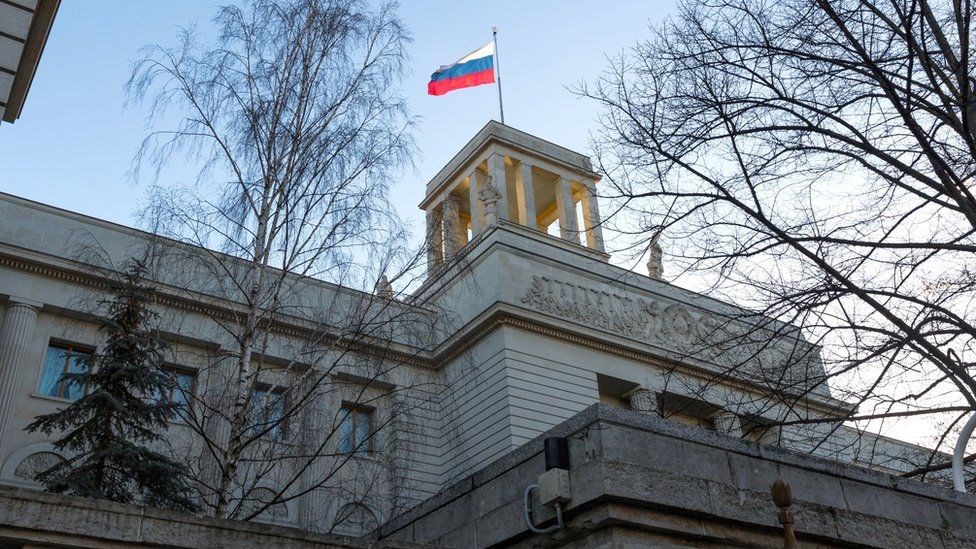Suspected terrorist attack on Russian journalists averted in Berlin
Russian journalists have been subject to an attempted terrorist attack that put their and their families' lives at risk amid a wave of Russophobia in the West.
-

The Russian Embassy in Berlin, Germany
An attack with an explosive device, purportedly terrorist, against Russian journalists and their family members has been thwarted in Berlin, the Russian embassy said on Saturday.
"On May 6, an attempt of what would likely be a terrorist attack was thwarted in Berlin against Russian journalists and their families accommodated in a residential building owned by the Russian Federation," the embassy said in a statement.
Someone threw a bottle into the window of one of the apartments in the second half of the day, the embassy said. An inspection of the building found a suspicious object hidden in the basement. The object was composed of a liquid-filled canister with a plastic bottle and a gas cylinder taped to it and wires connected to it, according to the statement.
"The German law enforcement officers who were asked to the scene evacuated and cordoned off the building and called fire brigades and sappers, who confirmed that the object was likely an improvised explosive device," the statement read, adding that sappers "deactivated" the device on spot.
The Russian embassy said the Berlin police were "investigating the incident."
"The Embassy has sent a note to the German foreign ministry demanding that it carry out an investigation, determine those responsible, and ensure the safety and proper working conditions of Russian journalists," the statement read.
This is not the first attack on Russian-related institutions and individuals, with the Berlin police recording more than 100 attacks of such background, including one on a Russian school.
Meta had said in a statement that it decided to allow the publication of calls for violence against Russians, which prompted the Russian Embassy in the United States to condemn the corporations' move as propagandist.
The Embassy further demanded that the US authorities stop the company’s “extremist activities” and bring them to justice, as the users of the social media platforms did not give the company the right “to determine the criteria of truth and pit nations against each other.”
Putting anti-Russian content being circulated on social media platforms aside, Meta, Google, and other Western platforms have been active in censoring Russian voices since the start of Russia's operation in Ukraine. Google Europe blocked Youtube channels connected to RT and Sputnik across Europe on March 1.
The bias against Russia aside, the argument that Meta has allowed this content on account of it being normal for people to call for violence against soldiers who have, as per the Big Tech firm, "Invaded their country" doesn't stand because Meta's history of silencing Palestinian content on its platforms.

 3 Min Read
3 Min Read









